Think of this as Volume 15, Number 25 of A-Clue.com, the online newsletter I've written since 1997. Enjoy.

It's an old political truth, one that holds no matter the kind of government system you have. Sunni unity gave Saddam Hussein power in Iraq's autocracy. Conservative unity gave Silvio Berlusconi power in Italy's democracy.
Unity leads to power in American politics as well. It's how political machines have always worked. As George Washington Plunkitt put it, “reformers are only morning glories.” Organization is the key to power, even in a democracy.
This is how the Crazy hangs on, in every era. A movement maintains unity even after it becomes a minority, and intensity compensates. It becomes institutionalized. It becomes received wisdom. Even after its assumptions become the cause of a new crisis – monopolies in the 1890s, producers in the 1930s, scaled manufacturing in the 1960s – organization allows power to be maintained.
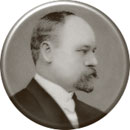
Plunkitt spoke his famous piece when he had lost power, and what's most important to remember is that he never regained power. The west side Democratic club that was Plunkitt's base took the name of the man who defeated him, Thomas McManus (left), and kept that name for a century.
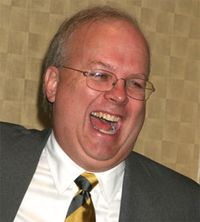
What changes with each American generation is the fulcrum of the economy, the dominant medium, and the key to organization. This is what makes the outgoing thesis vulnerable. Their economic sponsors are failing, they are focused on the wrong medium, and they value the wrong key to organizing support.
Step back a generation. Democrats focused on big manufacturers, with their big labor workforces, as the central point of the economy. They thought that what newspapers and magazines wrote mattered. And they organized through formal organizations, through industry groups and labor unions. Republicans, meanwhile, saw that technology and intellectual property, both based in California, represented the new power. They saw TV as the medium that mattered. And they saw money as the key organizing principle. That's how Nixon won, the assumptions were validated by Reagan, and they were carried into our time by the Bush family.
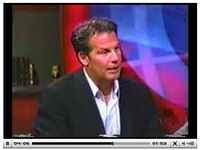
Our dominant medium has also changed. TV no longer matters as it did, even cable TV. The Internet is where it's at. And what matters on the Internet isn't the top-down process of telling people what to think, but the more subtle process of interaction, and of taking believers down a political sales funnel, organizing them and enabling their self-organization in cyberspace.
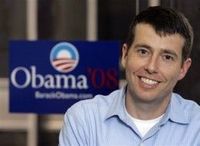
This organizing principle does take money. But money isn't the key to it. Permission is the key. It's who do you trust online, and whether you'll jump when those you trust tell you to jump, that matters.
You don't have to jump very high. Only high enough to register and vote. It's not the depth of your supporter's passion that matters in 2012, although being able to activate core supporters does matter. It's about mindshare.
What makes the Obama “machine” of David Plouffe (above) powerful is its understanding of how all this works. The 2008 online organization was a first for this country. The Web site not only collected money, and names, but it activated supporters. It put feet on the street, it built huge databases that could tell the campaign where its supporters were, and combined machines and people to get them to the polls.
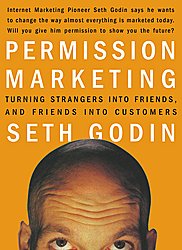
Seeing this, most reporters consider Republicans formidable. They see that their candidates are flawed, they know their incumbents are unpopular, but they assume this control of money and medium will, in the end, cause the knees to jerk as they have always jerked, that Republicans can't possibly lose.
Well, they can. And they will. Not just because of the issues, and not just because of the candidates. It's because the Obama campaign gave Democrats the power of Permission Marketing (right), because new online institutions like DailyKos are now more powerful in creating core supporters, and because the party's center is with the rising economics of the Creative Class.
All this will play out over the next 18 months. When the smoke clears, people who didn't see any of this coming will write learned tomes insisting they did, and explaining what you just read here. But you now have the power of foresight, not because you saw it on TV or got it in a book or a newspaper. It's all because you clicked, and understood what you were looking at.
Watch and learn.











Nice content. I would visit your site often to read more of them. To be very honest, I really gained a lot from this inspiring piece of information.
Nice content. I would visit your site often to read more of them. To be very honest, I really gained a lot from this inspiring piece of information.
Well, here it is more than eleven years later, and DONALD TRUMP HAS BEEN PRESIDENT. What is it about the Post-Sixties Big Retro Consensus that we just can’t seem to shake it off? Why are Democrats still so poor at messaging?
Well, here it is more than eleven years later, and DONALD TRUMP HAS BEEN PRESIDENT. What is it about the Post-Sixties Big Retro Consensus that we just can’t seem to shake it off? Why are Democrats still so poor at messaging?